

Pharmacology Study Guide for Nursing Students
In nursing school, pharmacology class is challenging for most students. Pharmacology focuses on how drugs work, their effects, and how the body utilizes drugs. Most nursing students find pharmacology very tough. When they are in clinicals, they have to administer medicines to patients under the careful supervision of their instructors.
Pharmacology is one of the most essential subjects in nursing school because nurses are the ones who dispense medicines to patients. Nurses are also the one who supervises how well the patient is tolerating certain medications.
Without understanding how drugs work, a nurse might dose her patient with too much or too little medication, causing harm to her patient. A nurse must spend a significant amount of time in nursing school learning about hundreds of drugs. So let’s talk about Pharmacology Study Guide for Nursing Students to help make mastering pharmacology a little easier.
In this article, we are going to talk about:
- Common problems students have in Pharmacology in Nursing Program
- Strategic ways and study plan on How to ace Pharmacology for Nurses
But before, let’s take a brief look at the pharmacology course.

Why is Pharmacology a Challenging Course for Nurses?
Nursing students should not give up.
- Nursing Exams Can Be Hard, but It's Worth It!
Pharmacology Notes for Nurses
Pharmacology is a challenging course for nursing students because it requires them to know how drugs work. During clinical, nurses need to have enough knowledge about medications to plan when giving specific doses to their patients. Nurses are required to be knowledgeable to prevent dangerous drug interactions.
If a nurse does her patient the wrong way or has an inappropriate timing in giving medications, then that nurse will have problems with their nursing license and can even lose it if mistakes are big enough. It is crucial to learn pharmacology well so that nurses won’t make any severe mistake of administering meds during clinical rotations.
Pharmacology’s Content
Pharmacology courses contain much content, but most nursing students have trouble with drug calculation and metabolism. Some of the classes covered during pharmacology are Pharmacodynamics, Pharmacodynamics, Pharmacokinetics, Drug Metabolism, Excretion Mechanisms & Non-Prescription Medications.
These are some subtopics discussed in the pharmacology course that requires knowledge from students. Depending on the school where you are studying, there might be a different set of content for pharmacology courses. However, all nursing students have to learn about these essential facts about medications if they want to become a nurse.
Nursing school can be challenging, but most students enjoy going to classes and learning about topics related to nursing. However, pharmacology is very hard because there is much information about medications that need to be taught for nursing students to understand the whole picture of what they need to learn during their clinical.
Nursing students must know when to give certain medications to patients not to cause harm in drug interactions. Also, nurses need to know about administering specific dosages without making severe mistakes in administering meds to prevent errors caused by poor nurse practices. Drug dosage calculation is very important.
What Are the Problems Nursing Students Have in Pharmacology?
When it comes to the student’s problem, every student may be facing different issues, but the following are some common problems that almost every nursing students have during their pharmacology course:
Developing a Study Method to Use
When it comes to studying pharmacology, the first thing first is to develop a study method that’s customized for you. Everyone has their own way of studying and it should be made according to your preferences. There are many ways on how students can study pharmacology like reading lecture notes, reviewing questions, attending lectures, studying textbooks, writing down summaries of what was learned during classes, etc.
Learning What Material Is Essential to Know and What Is Not
Many students wonder how to make things easier for them to study pharmacology. Nursing students need to know what material is necessary and what is not because it will save their time and energy in studying unnecessary and unimportant materials to be learned.
Try to Memorize Every Single Drug Name and Its Side Effects
When it comes to memorizing drug pre-fixes and names, their side effects, students need to know about every individual drug. Students need to prioritize learning drugs essential to learning compared to those unrelated to the nursing profession. Certain medications need only high school basic knowledge of taking care of patients to take the information.
When it comes to cramming, it is not a part of the study method when studying pharmacology. There are many things that students need to learn about which is essential for them to know. Still, it is not recommended that nursing students do cramming when taking pharmacology because it is dangerous since there are many medications with different sides effects if they are taken in high dosage.
Most students find it hard to study pharmacology because of the high dosage of information they need to learn. However, there are some tips on how nursing students can ace their pharmacology course without studying too much and spending too much time memorizing drug names.
Make Outlines
After reading your lecture notes or your book for pharmacology, make outlines according to the topics covered by the teacher/professor during lectures or class discussions. These outlines will allow you to know what subtopics/chapters were discussed, including new terms and acronyms learned during the debate, which is vital for you to remember so that you don’t forget them when taking exams.
Review Materials Before Taking the Test
Before taking your exam, review all of your materials, notes, medication cards , and outlines that you have made at home. This will help you refresh your mind with what was discussed in class which is essential when taking lecture exams. Also, some students like to make flashcards of drugs names and their side effects, which is also an excellent way to study pharmacology.
Utilize Your Resources
There is no need for nursing students to study everything on their own; they can always seek help from other sources – professors, classmates, or even friends – who have the same class with you so that you guys could share ideas and concepts about what was discussed during lecture, instead of going to school/classrooms and listening to unnecessary things again.
Don’t Be Too Hard on Yourself
Take pharmacology as a subject that is easy to learn, and it’s okay if you don’t know everything about medications and their side effect; it is super normal for students who are taking this type of course.
Nursing students should not be afraid to ask professors questions if they find something confusing – professors will always answer your question with a clear explanation – instead of giving up studying altogether.
It is better to research pharmacology after discussing things with your classmates or friends than to learn alone without knowing what you’re learning because you fear that you might get something wrong, leading to failing the course. You can find in-depth online tutorials on youtube about your subject.
Studying pharmacology is difficult for nursing students because they are afraid of getting things wrong. After all, it can reflect poorly on them even if they have the best intentions. However, being a bad student is never an option which makes studying pharmacology easier for everyone.
Nursing students need to practice self-discipline and determination when taking this type of subject so that their grades won’t go down because of poor study habits. As long as you know what you are studying, where to find information, or how to learn something new, everything will be okay; don’t ever forget that it is a lifelong process, and you will know things step by step.
Where to Find Pharmacology Study Guide for Nursing Students
- Nursing Cheatsheets from Nursing.com
- Free Pharmacology Study Guides from Nurseslabs
- Pharmacology Guides and Flashcards from Level Up RN
- Pharmacology Study Guide Bundle
- Pharmacology study guide to pass BSN pharmacology class
Nursing Exams Can Be Hard, but It’s Worth It!
Many nursing students find themselves overwhelmed with the amount of information that they need to memorize to ace their pharmacology examinations; this is the reason why some people would rather quit studying and give up on what they have learned.
However, suppose nursing students feel like giving up. In that case, they should not because there are many ways to study for an exam – all of them do not necessarily mean memorizing everything about medications and their side effect – which will guarantee them passing marks/grades at the end of the semester.
So we hope you liked this information, don’t forget to share this with your friends because they might be facing the same issue as you are. Our only purpose is to help students with their exams.
Also Check Out:
- How to Study Pharmacology
- 5 Tips to Master Pharmacology for Nurses
- 3 Pharmacology Tips to Help You Pass the NCLEX
- Nursing Math Questions
About The Author
Brittney wilson, bsn, rn, related posts.
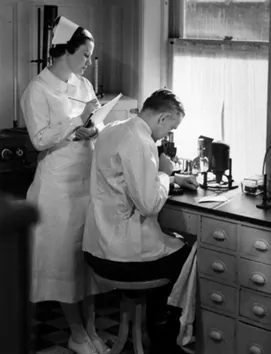
The Doctor-Nurse Relationship: Nurses Teach Doctors More Than You Think
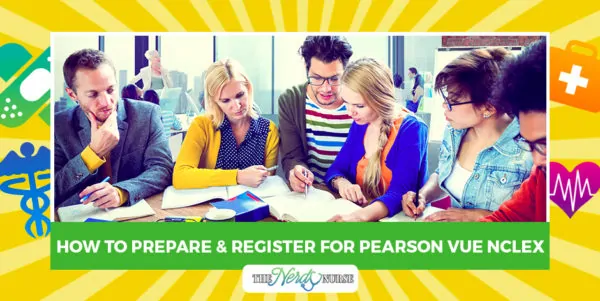
How to Prepare and Register for Pearson VUE NCLEX

25 Inspirational School Quotes That Will Motivate You In Nursing School

How To Make Money While In Nursing School (9+ Options!)
Leave a comment cancel reply.
Your email address will not be published. Required fields are marked *
Save my name, email, and website in this browser for the next time I comment.
This site uses Akismet to reduce spam. Learn how your comment data is processed .
Start typing and press enter to search
An official website of the United States government
The .gov means it's official. Federal government websites often end in .gov or .mil. Before sharing sensitive information, make sure you're on a federal government site.
The site is secure. The https:// ensures that you are connecting to the official website and that any information you provide is encrypted and transmitted securely.
- Publications
- Account settings
- Browse Titles
NCBI Bookshelf. A service of the National Library of Medicine, National Institutes of Health.
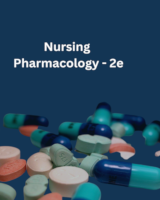
Nursing Pharmacology , 2nd edition
Open Resources for Nursing (Open RN) ; Editors: Kimberly Ernstmeyer , MSN, RN, CNE, CHSE, APNP-BC and Elizabeth Christman , DNP, RN, CNE.
Contributors
Affiliations.
- Copyright and Permissions
This is the second edition of the Open RN Nursing Pharmacology OER textbook. This free online textbook is an open educational resource with CC-BY 4.0 licensing that has been developed for prelicensure nursing students.
This edition has been updated according to the 2023 NCLEX-PN and NCLEX-RN Test Plans, and additional NCLEX Next Generation-style learning activities have been added to each chapter. It is aligned with the Wisconsin Technical College System (WTCS) statewide nursing curriculum for the Nursing Pharmacology course (543-103). View a list of updates in the second edition here .
This book introduces the principles of pharmacology and discusses classes of medications and their effects on the body. Emphasis is on the use of the nursing process to safely administer medications. This book is not intended to be used as a drug reference book. However, links are provided for prototype medications for each medication class to DailyMed , a trustworthy U.S. National Library of Medicine website, that contains detailed information about drugs marketed in the United States.
The Open RN project is supported by a $2.5 million grant from the Department of Education and is licensed under a Creative Commons Attribution 4.0 International License . However, these contents do not necessarily represent the policy of the Department of Education, and you should not assume endorsement by the federal government. More information about the Open RN project can be found at cvtc.edu/OpenRN .
The first edition of Open RN Nursing Pharmacology won an Award for Excellence from OE Global in 2020. For more information about the award, visit the 2020 OE Awards for Excellence site .
- Collapse All
- Standards and Conceptual Approach
- 1.1. PHARMACOKINETICS & PHARMACODYNAMICS INTRODUCTION
- 1.2. PHARMACOKINETICS
- 1.3. ABSORPTION
- 1.4. DISTRIBUTION
- 1.5. METABOLISM
- 1.6. EXCRETION
- 1.7. PHARMACODYNAMICS
- 1.8. TYPES OF MEDICATIONS
- 1.9. EFFICACY, DOSE-RESPONSE, ONSET, PEAK, AND DURATION
- 1.10. THERAPEUTIC LEVELS
- 1.11. EVALUATING EFFECTS
- 1.12. LEARNING ACTIVITIES
- I. GLOSSARY
- 2.1. LEGAL/ETHICAL INTRODUCTION
- 2.2. ETHICAL AND PROFESSIONAL FOUNDATIONS OF SAFE MEDICATION ADMINISTRATION BY NURSES
- 2.3. LEGAL FOUNDATIONS AND NATIONAL GUIDELINES FOR SAFE MEDICATION ADMINISTRATION
- 2.4. CULTURAL AND SOCIAL DETERMINANTS RELATED TO MEDICATION ADMINISTRATION
- 2.5. PREVENTING MEDICATION ERRORS
- 2.6. LEARNING ACTIVITIES
- II. GLOSSARY
- 3.1. ANTIMICROBIALS INTRODUCTION
- 3.2. BASIC CONCEPTS OF ANTIMICROBIAL THERAPY
- 3.3. ANTIMICROBIAL ADMINISTRATION CONSIDERATIONS
- 3.4. APPLYING THE NURSING PROCESS TO ADMINISTERING ANTIMICROBIALS
- 3.5. PENICILLIN
- 3.6. CEPHALOSPORINS
- 3.7. CARBAPENEMS
- 3.8. MONOBACTAMS
- 3.9. SULFONAMIDES
- 3.10. FLUOROQUINOLONES
- 3.11. MACROLIDES
- 3.12. AMINOGLYCOSIDES
- 3.13. TETRACYCLINES
- 3.14. ANTIVIRALS
- 3.15. ANTIFUNGALS
- 3.16. ANTIMALARIALS
- 3.17. ANTIPROTOZOALS
- 3.18. ANTIHELMINTICS
- 3.19. ANTITUBERCULARS
- 3.20. MISCELLANEOUS ANTIBACTERIALS: GLYCOPEPTIDES
- 3.21. LEARNING ACTIVITIES
- III. GLOSSARY
- 4.1. AUTONOMIC NERVOUS SYSTEM INTRODUCTION
- 4.2. BASIC CONCEPTS OF THE AUTONOMIC NERVOUS SYSTEM
- 4.3. APPLYING THE NURSING PROCESS TO ANS MEDICATIONS
- 4.4. ANS MEDICATION CLASSES
- 4.5. NICOTINE RECEPTOR AGONISTS
- 4.6. MUSCARINIC RECEPTOR AGONISTS
- 4.7. MUSCARINIC ANTAGONISTS
- 4.8. ALPHA-1 AGONISTS
- 4.9. ALPHA-1 ANTAGONISTS
- 4.10. ALPHA-2 AGONISTS
- 4.11. BETA-1 AGONISTS
- 4.12. BETA-1 ANTAGONISTS
- 4.13. BETA-2 AGONISTS
- 4.14. BETA-2 ANTAGONISTS
- 4.15. ALPHA- AND BETA-RECEPTOR AGONISTS (CATECHOLAMINES)
- 4.16. ACETYLCHOLINESTERASE INHIBITORS
- 4.17. LEARNING ACTIVITIES
- IV. GLOSSARY
- 5.1. RESPIRATORY INTRODUCTION
- 5.2. BASIC CONCEPTS OF THE RESPIRATORY SYSTEM
- 5.3. COMMON RESPIRATORY DISORDERS
- 5.4. APPLYING THE NURSING PROCESS TO ADMINISTERING RESPIRATORY MEDICATIONS
- 5.5. RESPIRATORY MEDICATION CLASSES
- 5.6. ANTIHISTAMINES
- 5.7. DECONGESTANTS
- 5.8. ANTITUSSIVES
- 5.9. EXPECTORANTS
- 5.10. BETA-2 AGONISTS
- 5.11. ANTICHOLINERGICS
- 5.12. CORTICOSTERIODS
- 5.13. LEUKOTRIENE RECEPTOR ANTAGONISTS
- 5.14. XANTHINE DERIVATIVES
- 5.15. LEARNING ACTIVITIES
- V. GLOSSARY
- 6.1. CARDIOVASCULAR AND RENAL SYSTEM INTRODUCTION
- 6.2. BASIC CONCEPTS OF THE CARDIOVASCULAR AND RENAL SYSTEMS
- 6.3. COMMON CARDIOVASCULAR DISORDERS
- 6.4. APPLYING THE NURSING PROCESS TO ADMINISTERING CARDIOVASCULAR AND RENAL MEDICATIONS
- 6.5. CARDIOVASCULAR AND RENAL SYSTEM MEDICATIONS
- 6.6. ANTIARRHYTHMICS
- 6.7. CARDIAC GLYCOSIDES
- 6.8. ANTIANGINAL – NITRATES
- 6.9. DIURETICS
- 6.10. ANTIHYPERTENSIVES
- 6.11. ANTILIPEMICS
- 6.12. BLOOD COAGULATION MODIFIERS
- 6.13. ERECTILE AGENTS
- 6.14. LEARNING ACTIVITIES
- VI. GLOSSARY
- 7.1. GASTROINTESTINAL INTRODUCTION
- 7.2. BASICS CONCEPTS OF THE GASTROINTESTINAL SYSTEM
- 7.3. ANTIULCER MEDICATIONS
- 7.4. ANTIDIARRHEAL MEDICATIONS AND LAXATIVES
- 7.5. ANTIEMETICS
- 7.6. LEARNING ACTIVITIES
- VII. GLOSSARY
- 8.1. CENTRAL NERVOUS SYSTEM INTRODUCTION
- 8.2. BASIC CONCEPTS OF THE CENTRAL NERVOUS SYSTEM
- 8.3. DISORDERS OF THE CNS SYSTEM
- 8.4. APPLYING THE NURSING PROCESS TO ADMINISTERING CNS MEDICATIONS
- 8.5. CNS DEPRESSANTS
- 8.6. CNS STIMULANTS
- 8.7. ANTIDEPRESSANTS
- 8.8. ANTIMANIAS
- 8.9. ANTIPSYCHOTICS
- 8.10. ANTICONVULSANTS
- 8.11. ANTI-PARKINSON’S MEDICATIONS
- 8.12. LEARNING ACTIVITIES
- VIII. GLOSSARY
- 9.1. ENDOCRINE INTRODUCTION
- 9.2. BASIC CONCEPTS OF THE ENDOCRINE SYSTEM
- 9.3. CORTICOSTERIODS
- 9.4. ANTIDIABETICS
- 9.5. THYROID MEDICATIONS
- 9.6. HORMONAL CONTRACEPTIVES
- 9.7. LEARNING ACTIVITIES
- IX. GLOSSARY
- 10.1. ANALGESICS AND MUSCULOSKELETAL INTRODUCTION
- 10.2. BASIC CONCEPTS OF ANALGESICS AND THE MUSCULOSKELETAL SYSTEM
- 10.3. ACUTE PAIN, CHRONIC PAIN, AND MUSCULOSKELETAL DISORDERS
- 10.4. APPLYING THE NURSING PROCESS TO PAIN MANAGEMENT
- 10.5. ANALGESIC AND MUSCULOSKELETAL MEDICATIONS
- 10.6. NONOPIOID ANALGESICS
- 10.7. OPIOID ANALGESICS AND ANTAGONISTS
- 10.8. ADJUVANT ANALGESICS
- 10.9. ANTIGOUT MEDICATIONS
- 10.10. ANTIMIGRAINE MEDICATIONS
- 10.11. ANESTHETICS
- 10.12. LEARNING ACTIVITIES
- X. GLOSSARY
- Appendix A – Additional Information Related to the NCLEX Test Plan
Licensed under a Creative Commons Attribution 4.0 International License. To view a copy of this license, visit https://creativecommons.org/licenses/by/4.0/ .
- Cite this Page Open Resources for Nursing (Open RN); Ernstmeyer K, Christman E, editors. Nursing Pharmacology [Internet]. 2nd edition. Eau Claire (WI): Chippewa Valley Technical College; 2023.
- PDF version of this title (145M)
Other titles in this collection
- Open RN OER Textbooks
Related Items in Bookshelf
- All Textbooks
Bulk Download
- Bulk download content from FTP
Similar articles in PubMed
- Review Nursing Skills [ 2023] Review Nursing Skills Open Resources for Nursing (Open RN), Ernstmeyer K, Christman E. 2023
- Review Nursing Skills [ 2021] Review Nursing Skills Open Resources for Nursing (Open RN), Ernstmeyer K, Christman E. 2021
- Review Nursing Fundamentals [ 2021] Review Nursing Fundamentals Open Resources for Nursing (Open RN), Ernstmeyer K, Christman E. 2021
- Review Nursing Assistant [ 2022] Review Nursing Assistant Open Resources for Nursing (Open RN), Reuter-Sandquist M, Ernstmeyer K, Christman E. 2022
- Review Nursing Advanced Skills [ 2023] Review Nursing Advanced Skills Open Resources for Nursing (Open RN), Ernstmeyer K, Christman E. 2023
Recent Activity
- Nursing Pharmacology Nursing Pharmacology
Your browsing activity is empty.
Activity recording is turned off.
Turn recording back on
Connect with NLM
National Library of Medicine 8600 Rockville Pike Bethesda, MD 20894
Web Policies FOIA HHS Vulnerability Disclosure
Help Accessibility Careers
- Undergraduate
- High School
- Architecture
- American History
- Asian History
- Antique Literature
- American Literature
- Asian Literature
- Classic English Literature
- World Literature
- Creative Writing
- Linguistics
- Criminal Justice
- Legal Issues
- Anthropology
- Archaeology
- Political Science
- World Affairs
- African-American Studies
- East European Studies
- Latin-American Studies
- Native-American Studies
- West European Studies
- Family and Consumer Science
- Social Issues
- Women and Gender Studies
- Social Work
- Natural Sciences
- Pharmacology
- Earth science
- Agriculture
- Agricultural Studies
- Computer Science
- IT Management
- Mathematics
- Investments
- Engineering and Technology
- Engineering
- Aeronautics
- Medicine and Health
- Alternative Medicine
- Communications and Media
- Advertising
- Communication Strategies
- Public Relations
- Educational Theories
- Teacher's Career
- Chicago/Turabian
- Company Analysis
- Education Theories
- Shakespeare
- Canadian Studies
- Food Safety
- Relation of Global Warming and Extreme Weather Condition
- Movie Review
- Admission Essay
- Annotated Bibliography
- Application Essay
- Article Critique
- Article Review
- Article Writing
- Book Review
- Business Plan
- Business Proposal
- Capstone Project
- Cover Letter
- Creative Essay
- Dissertation
- Dissertation - Abstract
- Dissertation - Conclusion
- Dissertation - Discussion
- Dissertation - Hypothesis
- Dissertation - Introduction
- Dissertation - Literature
- Dissertation - Methodology
- Dissertation - Results
- GCSE Coursework
- Grant Proposal
- Marketing Plan
- Multiple Choice Quiz
- Personal Statement
- Power Point Presentation
- Power Point Presentation With Speaker Notes
- Questionnaire
- Reaction Paper
Research Paper
- Research Proposal
- SWOT analysis
- Thesis Paper
- Online Quiz
- Literature Review
- Movie Analysis
- Statistics problem
- Math Problem
- All papers examples
- How It Works
- Money Back Policy
- Terms of Use
- Privacy Policy
- We Are Hiring
Pharmacology: RN Nursing Practice, Essay Example
Pages: 4
Words: 987
Hire a Writer for Custom Essay
Use 10% Off Discount: "custom10" in 1 Click 👇
You are free to use it as an inspiration or a source for your own work.
The preparation, uses and effects of drugs is the basis for the science of pharmacology (Dictionary.com). As it relates to the practice of nursing, knowledge of pharmacology is required for their understanding of how to administer medicines to patients and to ensure compliance with regulatory standards. Ndosi & Newell (2009) report that The Nursing and Midwifery Council mandates that nurses be held accountable for their actions, as well as their omissions, and states “In administering any medication, nurses must exercise professional judgment and apply their knowledge and skills in the given situation acting in the best interests of the patient” (p. 570). Additionally, a nurse’s scope of practice responsibilities differs, depending on whether the nurse is a Registered Nurse (RN) or a Licensed Practical Nurse (LPN).
RN vs. LPN Scope of Practice
According to Greenwood (n.d.), RNs and LPNs share some of the same types of responsibilities as it relates to caring for patients, including administering medications. However, there are significant differences between the two when it comes to their scopes of practice and levels of education, critical thinking skills, planning and responsibilities. For example, RNs supervise LPNs, also LPNs are limited in their role in the nursing process of assessing, planning, implementing and evaluating patient needs. RNs are more independent in charge of coordinating these areas. Concerning implementing patient care plans, RNs make determinations on what is best for the patients and the LPNs initiate the plans, under the supervision of the RNs. This is because critical thinking skills are required to implement effective care and evaluation plans and this level of skill is not taught in an LPN curriculum (Greenwood, n.d.).
Specifically, a scope of nursing practice pertains to specific tasks an RN or an LPN is authorized to perform in their state, as mandated by the state board of nursing. Additionally, an RNs scope of practice includes more highly complex tasks than that of the LPN, including administering medications (Greenwood, n.d.). Information on scope of nursing practice requirements for a particular state is found in the state’s Nursing Practice Act .
Nursing Practice Act of California
As it relates to the administration of medication, the California Board of Nursing Practice Act for RNs states “Notwithstanding any other provision of law, a registered nurse may dispense drugs or devices upon an order by a licensed physician and surgeon if the nurse is functioning within a licensed clinic…” (CA.gov, Section 2725.1). The California act also mandates that RNs are not allowed to dispense drugs exclusively as their jobs or in a pharmacy. Nor are they allowed to operate any type of drug retailing business such as a pharmacy. Additionally, RNs are not allowed to dispense drugs included in the California Uniform Controlled Substances Act.
Impaired Professionals
Another state regulation on registered nurses governed by the California Board of Nursing relates to how impaired nursing professionals are dealt with. California has the Diversion Program in place to protect the public by identifying RNs who are impaired in their professions because of mental illness or chemical dependency. The Diversion Program also gives impaired RNs access to intervention and treatment programs. When impaired RNs are identified, they are placed on suspension and monitored accordingly (CA.gov).
Research in this Paper Compared to My Workplace
In my workplace, there are strict protocol processes and checks and balances put in place to ensure things run smoothly. Nurses where I work are all very contentious and try to follow the rules according to how they are regulated. There have been times when procedures were not followed according to protocol but everyone was very good about correcting any problems that may have arisen from those incidents. Everyone in my workplace looks out for each other and tries to make sure that, no matter what, the patients are well taken care of, especially when it comes to safe medication procedures for them. Errors in medication dispensing are avoided as much as possible by following protocol when dealing with medications.
Principles of Safe Medication
According to the California Medical Association, safe medication practices are important for the safety of patents, assurance that medications are used properly, and the reduction of liability loss. To ensure the success of safe medication practice efforts, established principles are in place to help medical professionals cut down on medication errors. These principles include 1) familiarity with prescribed medications, 2) knowledge of patient’s recent drug use, and 3) knowledge of patient allergies.
Familiarity with prescribed medications may lead to prescribing errors. It is important that medical professionals understand appropriate dosage, indications and contraindications of medications, as well as any side effects associated with the medications (Safe Medication Principles, n.d.).
Knowledge of patient’s recent drug use helps eliminate surprise drug interactions. It is important for medical professionals to ask patients about all of the drugs they are currently taking or have recently taken. This includes over-the-counter medicines, herbs and vitamins of any sort. Knowledge of patient allergies is also important to help prevent treatment failure or unwanted reactions to prescribed drugs.
The science of pharmacology in RN nursing practice is essential to ensure safety in drug administration and use. RNs need a basic understanding of pharmacology to better handle a patient’s possible adverse reaction to a particular drug. It is best to know what to expect once a drug is administered to a patient, and the inclusion of the science of pharmacology in the curriculum of RNs is necessary to increase competence in the healthcare setting, as it relates to administering medicines, complying with regulations and offering the best possible care to all patients.
CA.gov. (2012). Diversion Program. California Board of Registered Nursing website. Retrieved from http://www.rn.ca.gov/diversion/whatisdiv.shtml
CA.gov. (2012). Regulations: Article 2. Scope of Regulation. California Board of Registered Nursing website. Retrieved from http://www.rn.ca.gov/regulations/bpc.shtml#2725.1
Greenwood, B. (n.d.). RN Duties vs. LPN Duties. Houston Chronicle online. Retrieved from http://work.chron.com/rn-duties-vs-lpn-duties-9254.html
Ndosi, M. E., & Newell, R. (2009). Nurses’ knowledge of pharmacology behind drugs they commonly administer. Journal Of Clinical Nursing, 18(4), 570-580. doi:10.1111/j.1365-2702.2008.02290.x.
Pharmacology. (n.d.). Dictionary.com. Retrieved from http://dictionary.reference.com/browse/pharmacology
Safe Medication Principles. (n.d.). California Medical Association. Retrieved from http://www.safer.healthcare.ucla.edu/safer/archive/general735.pdf
Stuck with your Essay?
Get in touch with one of our experts for instant help!
My Country Model, Essay Example
Demand-Side Policies and 2008 Recession, Research Paper Example
Time is precious
don’t waste it!
Plagiarism-free guarantee
Privacy guarantee
Secure checkout
Money back guarantee

Related Essay Samples & Examples
Voting as a civic responsibility, essay example.
Pages: 1
Words: 287
Utilitarianism and Its Applications, Essay Example
Words: 356
The Age-Related Changes of the Older Person, Essay Example
Pages: 2
Words: 448
The Problems ESOL Teachers Face, Essay Example
Pages: 8
Words: 2293
Should English Be the Primary Language? Essay Example
Words: 999
The Term “Social Construction of Reality”, Essay Example
Words: 371

Understanding Pharmacology in Nursing Practice
- © 2020
- Pauline Hood 0 ,
- Ehsan Khan 1
(Retired) Florence Nightingale Faculty of Nursing, Midwifery & Palliative Care, King’s College London, London, UK
You can also search for this editor in PubMed Google Scholar
Florence Nightingale Faculty of Nursing, Midwifery & Palliative Care, King’s College London, London, UK
- Educates the qualified nurse responsible for monitoring drug safety and or prescribing medications
- Provides the reader with concepts of processes linked to medication safety and applied to nursing practice
- Addresses the issues of drug interactions from both a pharmacodynamics as well as pharmacokinetic perspective
43k Accesses
20 Citations
226 Altmetric
This is a preview of subscription content, log in via an institution to check access.
Access this book
- Available as EPUB and PDF
- Read on any device
- Instant download
- Own it forever
- Compact, lightweight edition
- Dispatched in 3 to 5 business days
- Free shipping worldwide - see info
Tax calculation will be finalised at checkout
Other ways to access
Licence this eBook for your library
Institutional subscriptions
About this book
Similar content being viewed by others.

Prescribing
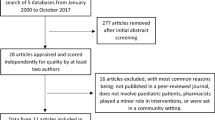
A systematic review of clinical pharmacist interventions in paediatric hospital patients

The Identity of Non-medical Prescribers
- Pharmacology
- Pharmacokinetics
- Pharmacodynamics
- Medication safety
- Safe Prescribing
- pharmacotherapy
Table of contents (14 chapters)
Front matter, legal and ethical issues, legal and ethical issues associated with medication.
- Sherri Ogston-Tuck
Principles of Pharmacology
Pharmacokinetics and pharmacodynamics, drug formulations.
- Ali A. Dahab
Adverse Drug Reactions and Drug Interactions
- Nicola Husain
Systemic Pharmacology
Pharmacology of pain.
- Sheila Turner
Antimicrobials
- Edward Purssell
Medications Used for the Cardiovascular System
- Joan Adams, Ehsan Khan
Medications Used for the Renal System
- Roseline Elsie Agyekum
Medications Used for Diabetes Mellitus
- Haya Abu Ghazaleh, Ehsan Khan
Medications Used for the Respiratory System
- Shelley Peacock
Medications Used for the Gastrointestinal System
Medications used for the central nervous system, medications used for mental health illness, medications used for cancer.
- Mary Anne Lagmay Tanay
Editors and Affiliations
(retired) florence nightingale faculty of nursing, midwifery & palliative care, king’s college london, london, uk.
Pauline Hood
Florence Nightingale Faculty of Nursing, Midwifery & Palliative Care, King’s College London, London, UK
About the editors.
Mrs Hood has had many years of clinical and academic experience. Her focus of clinical practice was perioperative nursing.Mrs Hood was a lecturer at the Florence Nightingale Faculty of Nursing, Midwifery and Palliative care, King's College London from 1995 and undertook a range of teaching, managerial and academic roles until her retirement. Mrs Hood pioneered pharmacology education at the Faculty and from 1999 she and Dr Khan developed and promoted pharmacology education for nurses and midwives. Mrs Hood has published a range of papers and texts and was the editor of the Journal of Advanced Perioperative Care.
Bibliographic Information
Book Title : Understanding Pharmacology in Nursing Practice
Editors : Pauline Hood, Ehsan Khan
DOI : https://doi.org/10.1007/978-3-030-32004-1
Publisher : Springer Cham
eBook Packages : Medicine , Medicine (R0)
Copyright Information : The Editor(s) (if applicable) and The Author(s), under exclusive license to Springer Nature Switzerland AG 2020
Softcover ISBN : 978-3-030-32003-4 Published: 07 February 2020
eBook ISBN : 978-3-030-32004-1 Published: 06 February 2020
Edition Number : 1
Number of Pages : VIII, 411
Number of Illustrations : 109 illustrations in colour
Topics : Nursing Education , Pharmacotherapy
- Publish with us
Policies and ethics
- Find a journal
- Track your research
Registered Nurse RN
Registered Nurse, Free Care Plans, Free NCLEX Review, Nurse Salary, and much more. Join the nursing revolution.
How to Study for Pharmacology in Nursing School
Pharmacology is a difficult class in nursing school . Pharmacology is the study of how a drug works on the body, its side effects on the body, and the way the body uses the drug.
Most nursing students find pharmacology a tough course because you are required to know the name, side effects, nursing interventions, and the way the body uses the drug in such a short amount of time. Normally, a student takes a pharmacology class in one semester and may be are given only 3 weeks to learn 5-10 chapters of material. So, it can be very overwhelming, especially if you don’t know how to properly study.
In this article, I’m going to discuss the following:
- Common problems students have in Pharmacology
- Strategic ways on How to Study & Ace Pharmacology
Video on How to Study for Pharmacology
Don’t forget to subscribe to my YouTube channel for more videos!
Common problems students have in pharmacology
- Developing a study method to use! Students tend to get overwhelmed by all the material they are required to know for a pharmacology exam and feel defeated when trying to develop a study method.
- Learning what material is essential to know and what is not! Many students wonder, “Do I have to read every chapter word-for-word and memorize the power points verbatim?”
- Trying to memorize every single drug name and its side effects! The best approach is to memorize the drug group by suffixes and pre-fixes or classification. This will be discussed in the study strategies below.
- Cramming! It is really hard to juggle other classes along with pharmacology. Some students make the mistake of not setting aside enough time to prepare for an exam.
Study Strategies for Pharmacology in Nursing School
Learn drug pre-fixes & suffixes and classification of the generic drug name rather than trying to memorize individual drug names!
Most drug classes work on the same system of the body and have the same side effects. These classes tend to have similar pre-fixes and suffixes. If you try to remember similar pre-fixes and suffixes rather than individual drug names, you will be able to study the material easier. Furthermore, it helps eliminate trying to learn individual side effects and their pharmacokinetic abilities.
Let’s look at an example:
Example: A set of cardiac medications known as beta blocker have a similar suffixes known as olol. Here are three beta blocker: Metoprolol , Atenolol, Propranolol….note how the all end with olol. These drugs also have same side effects such as slow heart rate, cold hands, feet, tiredness etc. and work on the body systems the same.

Another example can be applied to when you are studying antibiotics. Most antibiotics are broken down by classification such as macrolides. Macrolides include drugs ending is mycin such as Erythromycin, Azithromycin, Clarithromycin. These drugs are metabolized in the same areas as well and have similar side effects.
Make flash cards!
This is really one of the best ways to study for pharmacology. Either you can make your own flash cards by using index cards or buy some. If you choose to buy flash cards I recommend Kaplan, Lange,or Pharm Plash !*
I personally think creating the flash cards is the best method because you have to look-up the material and formulate what to write on the flash card which requires you to learn the material again. Then after creating the card it is a great idea you repeat them aloud.
When you create flash cards, don’t make the mistake of creating them two days before the exam because this will not give you enough time to study them. It is best practice to create flash cards after each lecture class. This is because if you don’t re-read or review what you learned in class the same day your brain tends to forget 70 to 80% of what you heard in class and creating flash cards helps prevent this. In addition, every day when you have downtime, review the flash cards.
As a side note, there is a free site call studystack.com where people have uploaded pharm flash cards for you to use and you can create your own.
Get a drug guide!
When you are making your flashcards you can easily flip to the drug name and find the side effects and common nursing interventions. This prevents you from flipping through your textbook which usually has the material scattered everywhere. The drug book condenses it down. Here are popular drug guides !*
Create fun mnemonic or acronyms and illustrations! If you’re not good at this, there are so many free resources out there that have great mnemonics for pharmacology. I recommend using Pinterest or searching for it through Google.
Teach others! You can do this with a classmate or to yourself. When you develop a teaching plan and teach others, it requires you learn the material and completely understand it on a critical-thinking level.
Get a study guide! Nursing Pharmacology Made Incredibly Easy * is a great supplementary study guide that helps break down the pharmacology material. Also, many study guides have built in test questions and excellent mnemonic/illustrations to help your remember difficult material. Some professors will give out study guides a few days before the test to tell you want drug categories you will need to concentrate on.
Don’t give up! If you have bombed your first exam don’t worry or give up. Learn from your mistakes and figure out what type of strategies I’ve covered will work for you. I suggest pick one or two of these strategies and make them your own.
You may be interesting in: Videos on Nursing School Study Tips
*RegisteredNurseRN.com is an Amazon.com affiliate and the items recommended by me in the post are based on my personal opinion as someone who has graduated from nursing school. Any purchase you make through Amazon.com by clicking the hyperlink, our website obtains a commission which helps fund our site.
Please Share:
- Click to print (Opens in new window)
- Click to share on Facebook (Opens in new window)
- Click to share on Twitter (Opens in new window)
- Click to share on Pinterest (Opens in new window)
- Click to share on Reddit (Opens in new window)
- Click to share on LinkedIn (Opens in new window)
- Click to share on WhatsApp (Opens in new window)
- Click to share on Pocket (Opens in new window)
- Click to share on Telegram (Opens in new window)
Disclosure and Privacy Policy
Important links, follow us on social media.
- Facebook Nursing
- Instagram Nursing
- TikTok Nurse
- Twitter Nursing
- YouTube Nursing
Copyright Notice
Forgot Password
- Sign In | Register for new account
- Forgot Password | Register for new account

- SHARE THIS CONTENT
- AS A MEMBER
- AS AN ADVERTISER
- Location Australian State or Territory New South Wales Victoria Queensland Western Australia South Australia Tasmania Australian Capital Territory Northern Territory International All international New Zealand United States London Ireland Rest of UK
- Field Registered Nurse Enrolled Nurse Midwifery Assistant In Nursing Occupational Therapist Physiotherapy Administration Medical Imaging Allied Health Carer Clinical Education / Sales General Practitioners Paramedic Psychology / Counselling Social Worker Specialists / Consultants Support Services Residents and Registrars
- I want to subscribe to HealthTimes
- I have read and accept the Terms and Conditions *
Company Information
- Organisation Type Public Hospital Private Hospital Aged Care Facility Nursing Agency Recruitment Agency Education Provider Corporate Provider Private Practice
Billing Address
- State New South Wales Victoria Queensland South Australia Western Australia Tasmania ACT Northern Territory N/A
- Country Australia New Zealand United Kingdom Afghanistan Albania Algeria American Samoa Andorra Angola Anguilla Antarctica Antigua and Barbuda Argentina Armenia Aruba Australia Austria Azerbaijan Bahamas Bahrain Bangladesh Barbados Belarus Belgium Belize Benin Bermuda Bhutan Bolivia Bosnia and Herzegowina Botswana Bouvet Island Brazil British Indian Ocean Territory Brunei Darussalam Bulgaria Burkina Faso Burundi Cambodia Cameroon Canada Cape Verde Cayman Islands Central African Republic Chad Chile China Christmas Island Cocos (Keeling) Islands Colombia Comoros Congo Cook Islands Costa Rica Cote D'Ivoire Croatia Cuba Cyprus Czech Republic Denmark Djibouti Dominica Dominican Republic East Timor Ecuador Egypt El Salvador Equatorial Guinea Eritrea Estonia Ethiopia Falkland Islands (Malvinas) Faroe Islands Fiji Finland France France, Metropolitan French Guiana French Polynesia French Southern Territories Gabon Gambia Georgia Germany Ghana Gibraltar Greece Greenland Grenada Guadeloupe Guam Guatemala Guinea Guinea-bissau Guyana Haiti Heard and Mc Donald Islands Honduras Hong Kong Hungary Iceland India Indonesia Iran (Islamic Republic of) Iraq Ireland Israel Italy Jamaica Japan Jordan Kazakhstan Kenya Kiribati Korea, Democratic People's Republic of Korea, Republic of Kuwait Kyrgyzstan Lao People's Democratic Republic Latvia Lebanon Lesotho Liberia Libyan Arab Jamahiriya Liechtenstein Lithuania Luxembourg Macau Macedonia, The Former Yugoslav Republic of Madagascar Malawi Malaysia Maldives Mali Malta Marshall Islands Martinique Mauritania Mauritius Mayotte Mexico Micronesia, Federated States of Moldova, Republic of Monaco Mongolia Montserrat Morocco Mozambique Myanmar Namibia Nauru Nepal Netherlands Netherlands Antilles New Caledonia New Zealand Nicaragua Niger Nigeria Niue Norfolk Island Northern Mariana Islands Norway Oman Pakistan Palau Panama Papua New Guinea Paraguay Peru Philippines Pitcairn Poland Portugal Puerto Rico Qatar Reunion Romania Russian Federation Rwanda Saint Kitts and Nevis Saint Lucia Saint Vincent and the Grenadines Samoa San Marino Sao Tome and Principe Saudi Arabia Senegal Seychelles Sierra Leone Singapore Slovakia (Slovak Republic) Slovenia Solomon Islands Somalia South Africa South Georgia and the South Sandwich Islands Spain Sri Lanka St. Helena St. Pierre and Miquelon Sudan Suriname Svalbard and Jan Mayen Islands Swaziland Sweden Switzerland Syrian Arab Republic Taiwan Tajikistan Tanzania, United Republic of Thailand Togo Tokelau Tonga Trinidad and Tobago Tunisia Turkey Turkmenistan Turks and Caicos Islands Tuvalu Uganda Ukraine United Arab Emirates United Kingdom United States United States Minor Outlying Islands Uruguay Uzbekistan Vanuatu Vatican City State (Holy See) Venezuela Viet Nam Virgin Islands (British) Virgin Islands (U.S.) Wallis and Futuna Islands Western Sahara Yemen Yugoslavia Democratic Republic of Congo Zambia Zimbabwe

Are you primarily interested in advertising *
- A. Employment opportunities
- B. Education or training opportunities
Do you want to recieve the HealthTimes Newsletter?
- Confirm you have read and accept the Terms and Conditions *
- Do you want to receive ad expiry notices?

The importance of pharmacology in nursing
Author: HealthTimes
HealthTimes began its life as the 'Nursing Careers' magazine in 1995 becoming Nursing Careers Allied Health shortly thereafter. The business brand was relaunched as HealthTimes in February 2015.
The HealthTimes.com.au website is the largest health industry website in Australia receiving over 150,000 visits per month from nurses, midwives and allied health professionals. The HealthTimes magazine is the most widely distributed national nursing publication in Australia.
Subscribe for FREE to the HealthTimes magazine
FEATURED JOBS
Territory manager, frontline health auckland, exercise physiologist (personal trainer), genesiscare, speech pathologist, talent quarter pty ltd, patient service officer (medical administration).
- Why do medication errors occur?
- What are the contributing factors to medication errors?
- Which drug classes do I need to improve my knowledge of?
- What strategies could be implemented in the workplace to reduce error?
- Right Drug: double check the prescription, medication and expiry date on the medicine.
- Right Patient: confirm the patient by a minimum of two identifiers, such as their name and date of birth. Also ensure they have an understanding of what the medication is and any possible side effects.
- Right Dosage: confirm the dosage using a current drug reference. If unconfirmed, then calculate the dosage and double check with another nurse or doctor.
- Right Time: confirm how often the medicine is to be administered and check with the patient when they had their last dosage.
- Right Route: ensure the appropriateness of the route ordered and whether the patient can receive the medication from this route.
- Right Documentation: document the administration of the medication as soon as it has been administered. Using professional clinical software can guarantee consistency.
- Continue with education, with short courses that also provide contact hours and receive a Continuing Education Unit (CEU).
- Study drug information which can be accessed online and outlines precautions, side effects, interactions, dosage instructions, potential diagnoses a nurse can make and teachings for patients and carers.
- Access practice resources, such as practice guidelines and legal information, as well as text books which cover drug information, nursing skills in communication, and critical thinking.
- Increase their CPD hours, study online about drug interactions and administering medication successfully.
- Attend seminars aimed at nurses to update them about medicines.

Related Articles
- Fewer Aussie teens getting suntans
- How to become a Pharmacist in Australia
- The 'hospital in the home' revolution has been stalled by COVID-19
- COVID survivor says long COVID-19 effects are brutal
- Young SA children to get COVID-19 vaccine
- Victorians lose 150 limbs, fingers at work
Click here to subscribe to HealthTimes
Top stories.
- The colour of wounds and its implication for healing
- Nurse Salary - What do nurses earn?
- Nursing in Australia in 3 steps
- Respiratory assessment for nurses
- Pre and post-operative care
- What do Physiotherapists do?

Thanks, you've subscribed!
Share this free subscription offer with your friends

Email to a Friend
Subscribe for free.
To subscribe to the HealthTimes magazine complete the form below:
- Select Field Registered Nurse Enrolled Nurse Midwifery Assistant In Nursing Occupational Therapist Physiotherapy Administration Medical Imaging Allied Health Carer Clinical Education / Sales General Practitioners Paramedic Psychology / Counselling Social Worker Specialists / Consultants Support Services Residents and Registrars
- By subscribing to HealthTimes, you accept the sending of advertising material related to relevant third-party products and services via Email.

10 Nursing Pharmacology Practice Questions with Answers & Rationales

What are you struggling with in nursing school?
NURSING.com is the BEST place to learn nursing. With over 2,000+ clear, concise, and visual lessons, there is something for you!
The #1 Thing Stressing Out Nursing Students
The #1 thing nursing students say stresses them out . . . the hardest subject is “ Nursing Pharmacology ”. I hate that. Nursing students should stress about becoming amazing nurses, not about if they will be able to learn the meds they will be giving patients . . .
Welcome to my comprehensive guide on nursing pharmacology practice questions!
As a nursing student mastering pharmacology is essential for safe and effective patient care.
On that note, before we go any further, I want to invite you to grab a free copy of my book "140 Must Know Meds" (just pay to ship). Just click below 👇👇👇

In this blog post, I've curated a collection of practice questions that cover a wide range of pharmacological concepts and drug classes. Each question is accompanied by detailed answers and rationales to help you deepen your understanding and sharpen your medication management skills.
Whether you're preparing for the NCLEX exam or seeking to enhance your pharmacology knowledge, these practice questions will serve as a valuable resource.
Get ready to test your pharmacological expertise and gain insights into the reasoning behind each answer. Let's dive into the world of nursing pharmacology and strengthen our abilities to administer medications with confidence and precision.
**All of the pharmacology nursing practice questions come from the NURSING.com pharmacology course. View course HERE **
Common Medication Prefixes and Suffixes
Learning a “handful” of prefixes and suffixes will save you headaches, time, and pain when it comes to nursing pharmacology. We all know that -pril belongs to ACE inhibitors, but MOST drug classes have common prefixes and suffixes, and once you learn the most important ones you will be able to quickly identify a medication by class.

Pharmacology Nursing Practice Question 1:
Which of the following drugs is an example of an antitumor antibiotic that may be given to a client with cancer?
- Tetracycline
Pharmacology Nursing Practice Question Answer 1:
Pharmacology nursing practice question rationale 1:.
- This is an aminoglycoside and is not an anti-tumor antibiotic, but is a standard antibiotic that does not affect the spread of cancer cells in the body.
- This is a standard antibiotic that does not affect the spread of cancer cells in the body.
- Bleomycin is a medication known as an anti-tumor antibiotic given to clients with cancer as a form of treatment. It is a chemotherapy agent that differs from standard antibiotics in that it interferes with the DNA of the cancer cells, which stops the cancer from growing and spreading in the body. Bleomycin is given as an IM injection or intravenously, once or twice a week.
- This is a penicillin and is a standard antibiotic that does not affect the spread of cancer cells in the body.
Pharmacology Nursing Practice Question 2:
Which of the following medications is an example of a drug that a client might receive as a muscle relaxant during surgery?
- Suxamethonium
Pharmacology Nursing Practice Question Answer 2:
Pharmacology nursing practice question rationale 2:.
- Suxamethonium is a depolarizing skeletal muscle relaxant medication. It is often given just before intubation to make it easier to place the endotracheal tube because the client's body is relaxed.
- Propofol is a sedative/hypnotic, not a muscle relaxant.
- Codeine is a medication used for pain, not a muscle relaxant.
Pharmacology Nursing Practice Question 3:
A nurse is caring for a client with allergies to penicillins, NSAIDs, and sulfa drugs. The nurse withholds which medication for clarification from the provider?
- Acetaminophen
- Ciprofloxacin
- Azithromycin
Pharmacology Nursing Practice Question Answer 3:
Pharmacology nursing practice question rationale 3:.
- Acetaminophen is safe to give this client, as it is not an NSAID.
- This drug is an NSAID. The nurse should hold the medication and ask the client about the severity of the allergy, as well as ask the provider if they would like to change the medication to something else.
- This is a quinolone antibiotic, not a penicillin or a sulfa drug.
- This is a macrolide antibiotic, not a penicillin or a sulfa drug.
Basics of Med Math Calculations
Med math does NOT have to be your arch nemesis! I know it’s something that a lot of people struggle with and I promise I am here to help! I’m not going to lie, I’m a big nerd and I actually love this stuff!

There are only THREE main formulas you need to know. There are some rare times you may need something different but 95% of the time it will be one of these three.
- Dosages Dose = Want/Have x In
- Infusions Rate = Volume/Time
- Drip Rate Drip Rate = Volume/Time x Drip Factor
Let's take a few nursing practice questions!
Pharmacology Nursing Practice
Question 4:.
A pediatric nurse is performing an admission assessment. The mother of the client tells the nurse that she gave the child 2 teaspoons of acetaminophen. The nurse knows this is how many mL?
Pharmacology Nursing Practice Question Answer 4:
Pharmacology nursing practice question rationale 4:.
- 2 teaspoons equals 10 mL.
- This only equals 1 teaspoon.
- A single teaspoon = 5 mL, so 2 teaspoons is 10 mLs.
- This is only 2/5 of 1 teaspoon.
Question 5:
A nurse is preparing levothyroxine for a client. The ordered dose is 62.5 mcg. The medication comes in the following preparations: 25 mcg, 50 mcg, 75 mcg, and 100 mcg. The pills are scored and able to be cut in half. Which configuration would require the least amount of pills for the client to ingest?
- One 75mcg and half a 25mcg
- One 100mcg and half 25 mcg
- One 25 mcg and half 50 mcg
- One 50mcg and half 25mcg
Pharmacology Nursing Practice Question Answer 5:
Pharmacology nursing practice question rationale 5:.
- This equals 87.5 mcg, which is an incorrect dose.
- This equals 112.5 mcg, which is not the correct dose.
- This equals 50 mcg, which is not the correct dose.
- Half of 25 is 12.5. 12.5 mcg + 50 mcg equals 62.5 mcg.
Question 6:
The nurse is preparing the medications for a client. The client has ordered 3.75 mg of prednisone. The medication comes in 2.5 mg tabs. How many tabs will the nurse administer?
Pharmacology Nursing Practice Question Answer 6:
Pharmacology nursing practice question rationale 6:.
- The client would take 1.5 tabs of prednisone.
- 3.75/2.5=1.5 tabs of prednisone.
Essential NCLEX Meds by Class
As a nursing student preparing for the NCLEX exam, understanding the essential medications organized by class is crucial. Medication administration and knowledge of drug classes play a significant role in safe and effective patient care.

Question 7:
A client is taking Parnate, which is classified as a monoamine oxidase inhibitor (MAOI). Which of the following foods should the nurse counsel the client to avoid?
- Cottage cheese
- Green beans
Pharmacology Nursing Practice Question Answer 7:
Pharmacology nursing practice question rationale 7:.
- A monoamine oxidase inhibitor is a type of medication used for the treatment of depression. This type of medicine can react with foods that contain tyramine, causing hypertensive crisis. The client should be counseled to avoid tyramine-containing foods such as sauerkraut, aged cheeses, and fermented or smoked meats.
- This food does not contain tyramine.
Question 8:
A nurse is reviewing appropriate pain medications for a client with heart failure. The nurse reminds the client not to take non-steroidal anti-inflammatory drugs (NSAIDs) with symptomatic heart failure. Which of the following best describes the rationale for this?
- NSAIDs cause the breakdown of the stomach lining more readily among heart failure clients when compared to the general population
- NSAIDs cause increased pulmonary congestion in the heart failure client, which can worsen breathing
- NSAIDs are ineffective in treating the pain of heart failure
- NSAIDs can cause a decrease in renal function and subsequent fluid overload in the heart failure client
Pharmacology Nursing Practice Question Answer 8:
Pharmacology nursing practice question rationale 8:.
- A client with heart failure does not have breakdown of stomach lining more readily than the general population.
- The danger from NSAIDS is due to the stress the drugs put on the renal system, not the pulmonary system.
- Heart failure itself does not cause pain. In this scenario, NSAIDs are taken for pain that is not due to HF.
- Some pain medications, such as NSAIDs, can worsen symptoms of heart failure and should be avoided. NSAIDs require the kidneys to work harder and can cause a decrease in renal function. When this occurs, the kidneys may be unable to filter blood properly or to create appropriate amounts of urine. Fluid can therefore back up into circulation, causing a worsening of heart failure symptoms.
Question 9:
If a client is taking an antifungal medication and thiazide diuretics, which of the following electrolyte disturbances would the nurse expect to find?
- Hypocalcemia
- Hyperkalemia
- Hypermagnesemia
- Hypercalcemia
Pharmacology Nursing Practice Question Answer 9:
Pharmacology nursing practice question rationale 9:.
- Antifungal and thiazide diuretic use causes high calcium levels, not low calcium levels.
- Antifungal and thiazide diuretic use causes low potassium levels. This would be hypokalemia.
- Antifungal and thiazide diuretic use cause low potassium and high calcium levels.
- Both antifungals and thiazide diuretics cause hypercalcemia, so when used concurrently, the nurse must monitor calcium levels closely.
Question 10:
Which of the following drugs is classified as a Schedule I controlled substance?
- Methylphenidate
- Tylenol with codeine
Pharmacology Nursing Practice Question Answer 10:
Pharmacology nursing practice question rationale 10:.
- This is a Schedule II drug.
- This is a Schedule III drug.
- Controlled substances are substances that have the potential for harm or abuse, and whose possession and manufacturing are controlled by the government. A Schedule I controlled substance has the highest rate of abuse, is not used medically and possession of these substances is prohibited. Examples of Schedule I controlled substances include heroin, LSD and ecstasy.
Boost Your Confidence in Administering Medications
In conclusion, I hope these nursing pharmacology practice questions provided you with a valuable resource to enhance your medication management skills and prepare for success in pharmacology-related exams, such as the NCLEX.
By engaging with these practice questions and reviewing the comprehensive answers and rationales, you can deepen your understanding of key drug classes, improve critical thinking abilities, and boost your confidence in administering medications.
Don't forget to grab your free copy of our "140 Must Know Meds" book (just pay to ship) Click below 👇👇👇
You CAN Do This!
Happy Nursing!
5 Tips on How to Master NCLEX Test Questions
How to master nursing school (90 days at a time) | nursing.com, similar blog posts.

How to Learn Pharmacology Fast For Nursing School and The NextGen NCLEX
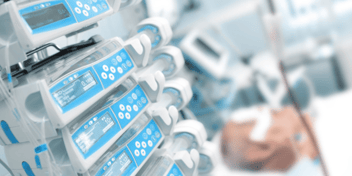
4 Little Known Tools for Mastering Pharmacology for Nurses | NURSING.COM
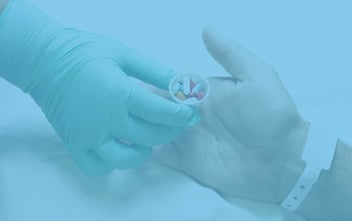
Nursing Dosage Med Math Calculations | NURSING.com
📕 Studying HQ
40+ pharmacology research topics: a comprehensive guide for nursing students, carla johnson.
- August 24, 2023
- Essay Topics and Ideas
Understanding pharmacology is crucial for nursing students as it forms the foundation of safe and effective patient care. This article aims to give nursing students insights into pharmacology research topics and potential research directions.
What You'll Learn
The Importance of Pharmacology in Nursing Education
Pharmacology involves studying how drugs interact with living organisms, including their effects, mechanisms, and possible side effects. Pharmacology knowledge is essential for administering medications, understanding drug interactions, and ensuring patient safety . By grasping pharmacological principles, nursing students can make informed decisions and deliver evidence-based care.

Exploring PICOT Questions in Pharmacology
- P: Adult psychiatric patients; I: Daily RS questionnaire; C: Units without daily survey; O: Reduced RS utilization; T: 6 months. Compared to units without the survey, can introducing a daily RS (Recovery Scale) questionnaire in psychiatric units lead to significantly decreased RS utilization over six months?
- P: Pediatric asthma patients; I: Peak flow monitoring; C: Standard symptom-based management; O: Decreased severe asthma exacerbations; T: 1 year. Does incorporating peak flow monitoring for pediatric asthma patients result in significantly fewer severe asthma exacerbations over a year compared to standard management?
- P: Elderly long-term care residents; I: Structured medication reconciliation; C: Informal reconciliation; O: Reduced medication discrepancies; T: 3 months. Among elderly in long-term care, does implementing structured medication reconciliation lead to significantly fewer medication discrepancies within three months compared to informal methods?
- P: Postoperative patients; I: Multimodal pain management ; C: Traditional pain management; O: Reduced opioid consumption; T: Postoperative period. Can adopting a multimodal pain management approach significantly reduce opioid consumption in postoperative patients compared to traditional methods?
- P: Diabetic patients; I: Interactive technology education; C: Conventional education; O: Improved glycemic control; T: 6 months. Among diabetic patients, does interactive technology education lead to better glycemic control over six months compared to conventional education?
- P: Oncology patients on chemotherapy ; I: Pre-chemotherapy antiemetic; C: Post-chemotherapy antiemetic; O: Reduced chemotherapy-induced nausea and vomiting; T: During chemotherapy. For oncology patients undergoing chemotherapy, does administering antiemetics before chemotherapy significantly decrease chemotherapy-induced nausea and vomiting compared to post-chemotherapy administration?
- P: Hypertensive patients; I: Home blood pressure monitoring; C: Clinic-based monitoring; O: Improved blood pressure control; T: 3 months. Does home blood pressure monitoring lead to better blood pressure control in hypertensive patients over three months compared to clinic-based monitoring?
- P: Critically ill ventilated patients; I: Early mobilization; C: Delayed mobilization; O: Shorter mechanical ventilation; T: ICU stay. Among critically ill ventilated patients, does early mobilization lead to shorter mechanical ventilation durations during ICU stays compared to delayed mobilization?
- P: Chronic pain patients; I: Mindfulness program; C: Standard pain management; O: Improved pain relief, quality of life; T: 8 weeks. Can participating in a mindfulness program lead to better pain relief and quality of life for chronic pain patients over eight weeks compared to standard pain management?
- P: Postmenopausal women; I: Calcium, vitamin D supplementation; C: No supplementation; O: Decreased bone density loss; T: 1 year. Among postmenopausal women at risk of osteoporosis, does calcium, vitamin D supplementation significantly reduce bone density loss over a year compared to no supplementation?
Evidence-Based Practice (EBP) Projects in Pharmacology
- Analyzing medication reconciliation’s impact on adverse drug events in geriatric patients.
- Comparing patient-controlled analgesia and nurse-controlled analgesia in postoperative pain management.
- Studying medication adherence’s effect on glycemic control in diabetes patients.
- Investigating antipsychotic medication use and fall risk in elderly psychiatric patients.
- Assessing pharmacogenomic testing’s role in psychiatric medication personalization.
- Comparing antiemetic agents for chemotherapy-induced nausea and vomiting prevention.
- Evaluating a structured pain assessment tool’s impact on pediatric pain management.
- Examining home blood pressure monitoring’s effect on hypertension control .
- Investigating opioid-sparing techniques in orthopedic postoperative pain management.
- Exploring herbal supplement use for managing menopausal symptoms.
Nursing Capstone Project Ideas in Pharmacology
- Designing a comprehensive medication education program for pediatric patients and caregivers.
- Developing a protocol for high-alert medication administration in critical care units.
- Creating a chronic pain interdisciplinary management plan in long-term care.
- Implementing a medication safety campaign to reduce errors in emergency departments.
- Designing a rural telehealth platform for medication counseling and adherence.
- Establishing immunosuppressive medication adverse reaction monitoring post-transplant.
- Creating a guideline for nurses in helping patients optimize polypharmacy.
- Designing a chemotherapy administration and monitoring training module.
- Developing a vasopressor medication titration protocol for septic shock.
- Creating a herbal supplement interaction resource guide.
Research Paper Topics in Pharmacology for Nursing Students
- Pharmacogenomics’ role in personalizing psychiatric medication regimens.
- Nurse contributions to preventing opioid misuse and overdose in the epidemic.
- Evaluating cultural diversity’s impact on medication beliefs and adherence.
- Strategies for optimizing medication regimens and preventing adverse effects in the elderly.
- Pharmacovigilance’s importance in monitoring and reporting adverse drug reactions.
- Herbal supplement-drug interaction evidence and practice analysis.
- Ethical considerations in pediatric medication administration.
- Antibiotic resistance’s implications and nurses’ role in prudent antibiotic use.
- Addressing medication disparities in healthcare.
- Medication errors: Causes, consequences, and prevention in nursing practice.
Understanding pharmacology is paramount for nursing students’ ability to provide safe and effective patient care. With knowledge of pharmacology, nursing students can make informed decisions and contribute to healthcare. Explore PICOT questions, research projects, and essay topics to enhance learning and engage in impactful healthcare practices. For further assistance, consider our writing services tailored to nursing students’ needs, helping you merge pharmacological knowledge with effective communication to excel in healthcare.
FAQs about Pharmacology in Nursing
Q: What is pharmacology in nursing?
A: Pharmacology in nursing studies how drugs interact with living organisms, encompassing their effects, mechanisms, and potential side effects. It’s a crucial field for nurses to ensure safe and effective patient care through proper medication administration and management.
Q: What are the 5 importance of pharmacology in nursing?
A: The importance of pharmacology in nursing includes enabling nurses to understand drug interactions, administer medications safely, manage patient responses, prevent adverse reactions, and provide evidence-based care.
Q: What are the principles of pharmacology for nurses?
A: The principles of pharmacology for nurses involve understanding drug actions, indications, contraindications, interactions, and adverse effects. It also includes proper dosage calculation, patient education , and ethical considerations.
Q: What are the types of pharmacology?
A: Pharmacology can be broadly categorized into several types, including clinical pharmacology (study of drugs in clinical settings), neuropharmacology (study of drugs affecting the nervous system), and psychopharmacology (study of drugs for mental disorders). Additionally, there’s pharmacokinetics (drug absorption, distribution, metabolism, excretion) and pharmacodynamics (drug effects on the body).
Start by filling this short order form order.studyinghq.com
And then follow the progressive flow.
Having an issue, chat with us here
Cathy, CS.
New Concept ? Let a subject expert write your paper for You
Have a subject expert write for you now, have a subject expert finish your paper for you, edit my paper for me, have an expert write your dissertation's chapter, popular topics.
Business Analysis Examples Essay Topics and Ideas How to Guides Nursing
- Nursing Solutions
- Study Guides
- Free College Essay Examples
- Privacy Policy
- Writing Service
- Discounts / Offers
Study Hub:
- Studying Blog
- Topic Ideas
- How to Guides
- Business Studying
- Nursing Studying
- Literature and English Studying
Writing Tools
- Citation Generator
- Topic Generator
- Paraphrasing Tool
- Conclusion Maker
- Research Title Generator
- Thesis Statement Generator
- Summarizing Tool
- Terms and Conditions
- Confidentiality Policy
- Cookies Policy
- Refund and Revision Policy
Our samples and other types of content are meant for research and reference purposes only. We are strongly against plagiarism and academic dishonesty.
Contact Us:
📞 +15512677917
2012-2024 © studyinghq.com. All rights reserved
- Find My Rep
You are here
Pathophysiology and Pharmacology in Nursing
- Sarah Ashelford - University of York, UK
- Justine Raynsford - University of Bradford, UK
- Vanessa Taylor - Northumbria University
- Description
Written in clear language and specifically for the nursing context, the new edition of this bestselling book is your ultimate guide to pathophysiology and pharmacology. Through a uniquely integrated approach, the book develops your knowledge of both the pathology of common conditions and their pharmacological treatment. This holistic approach builds your knowledge of the key concepts and processes, with real world examples illustrating their application to nursing practice.
Key features
- Logical structure that starts with the basics and before developing your understanding of more complex areas
- Real world case studies demonstrate the application of pathophysiology and pharmacology across all fields of nursing
- A clear and concise writing style makes complex terminology and biological processes easy to understand
- Revised and updated in line with contemporary evidence and best practice
- Mapped to the 2018 NMC Standards
Excellent resource supporting the delivery of pharmacology on the nursing programme linked to the new NMC, 2018 standards
Preview this book
Sample materials & chapters.
Sample Chapter
For instructors
Please select a format:
Select a Purchasing Option
- Electronic Order Options VitalSource Amazon Kindle Google Play eBooks.com Kobo

Nursing Pharmacology Practice Questions & Test Bank for NCLEX (500+ Questions)
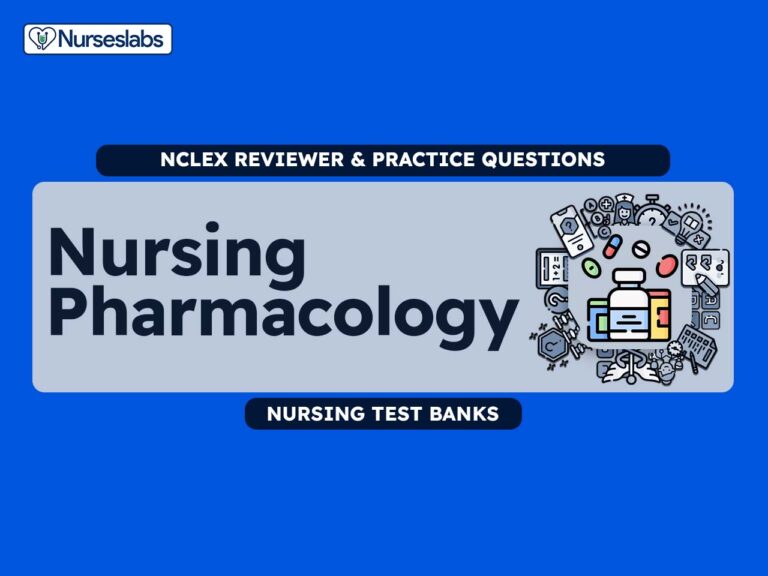
Welcome to your ultimate set of nursing pharmacology questions for the NCLEX ! In this nursing test bank , test your competence in nursing pharmacology with these 500+ practice NCLEX questions . This quiz aims to help nursing students review concepts of nursing pharmacology and provide a challenging alternative to Quizlet or ATI.
Nursing Pharmacology Questions and Test Banks
In this section are the practice problems and questions for nursing pharmacology. There are 530+ nursing pharmacology practice questions in this nursing test bank . Nursing topics include medication administration, dosage calculations, general concepts about nursing pharmacology, cardiovascular drugs, antibiotics and anti-infectives, neurological medications, psychiatric medications, drugs for the respiratory system , gastrointestinal system , and endocrine system.
All questions on this set are updated to give you the most challenging questions, along with insightful rationales to reinforce learning .
Quiz Guidelines
Before you start, here are some examination guidelines and reminders you must read:
- Practice Exams : Engage with our Practice Exams to hone your skills in a supportive, low-pressure environment. These exams provide immediate feedback and explanations, helping you grasp core concepts, identify improvement areas, and build confidence in your knowledge and abilities.
- You’re given 2 minutes per item.
- For Challenge Exams, click on the “Start Quiz” button to start the quiz.
- Complete the quiz : Ensure that you answer the entire quiz. Only after you’ve answered every item will the score and rationales be shown.
- Learn from the rationales : After each quiz, click on the “View Questions” button to understand the explanation for each answer.
- Free access : Guess what? Our test banks are 100% FREE. Skip the hassle – no sign-ups or registrations here. A sincere promise from Nurseslabs: we have not and won’t ever request your credit card details or personal info for our practice questions. We’re dedicated to keeping this service accessible and cost-free, especially for our amazing students and nurses. So, take the leap and elevate your career hassle-free!
- Share your thoughts : We’d love your feedback, scores, and questions! Please share them in the comments below.
Quizzes included in this guide are:
Recommended Resources
Recommended books and resources for your NCLEX success:
Disclosure: Included below are affiliate links from Amazon at no additional cost from you. We may earn a small commission from your purchase. For more information, check out our privacy policy .
Saunders Comprehensive Review for the NCLEX-RN Saunders Comprehensive Review for the NCLEX-RN Examination is often referred to as the best nursing exam review book ever. More than 5,700 practice questions are available in the text. Detailed test-taking strategies are provided for each question, with hints for analyzing and uncovering the correct answer option.
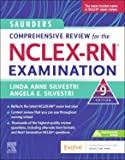
Strategies for Student Success on the Next Generation NCLEX® (NGN) Test Items Next Generation NCLEX®-style practice questions of all types are illustrated through stand-alone case studies and unfolding case studies. NCSBN Clinical Judgment Measurement Model (NCJMM) is included throughout with case scenarios that integrate the six clinical judgment cognitive skills.
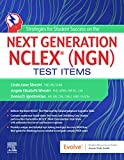
Saunders Q & A Review for the NCLEX-RN® Examination This edition contains over 6,000 practice questions with each question containing a test-taking strategy and justifications for correct and incorrect answers to enhance review. Questions are organized according to the most recent NCLEX-RN test blueprint Client Needs and Integrated Processes. Questions are written at higher cognitive levels (applying, analyzing, synthesizing, evaluating, and creating) than those on the test itself.
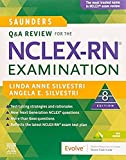
NCLEX-RN Prep Plus by Kaplan The NCLEX-RN Prep Plus from Kaplan employs expert critical thinking techniques and targeted sample questions. This edition identifies seven types of NGN questions and explains in detail how to approach and answer each type. In addition, it provides 10 critical thinking pathways for analyzing exam questions.
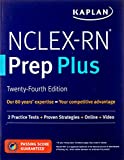
Illustrated Study Guide for the NCLEX-RN® Exam The 10th edition of the Illustrated Study Guide for the NCLEX-RN Exam, 10th Edition. This study guide gives you a robust, visual, less-intimidating way to remember key facts. 2,500 review questions are now included on the Evolve companion website. 25 additional illustrations and mnemonics make the book more appealing than ever.
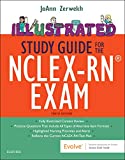
NCLEX RN Examination Prep Flashcards (2023 Edition) NCLEX RN Exam Review FlashCards Study Guide with Practice Test Questions [Full-Color Cards] from Test Prep Books. These flashcards are ready for use, allowing you to begin studying immediately. Each flash card is color-coded for easy subject identification.
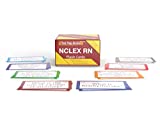
Nursing Pharmacology Review
Here are some study guides to help you review concepts about nursing pharmacology:
- Nursing Pharmacology – Study Guide for Nurses
Gastrointestinal System Drugs
- Histamine-2 Antagonists
- Proton Pump Inhibitors
Respiratory System Drugs
- Antihistamines
- Bronchodilators and Antiasthmatics
- Decongestants
- Expectorants and Mucolytics
- Inhaled Steroids
- Lung Surfactants
Endocrine System Drugs
- Adrenocortical Agents
- Antidiabetic Agents
- Glucose-Elevating Agents
- Hypothalamic Agents
- Parathyroid Agents: Bisphosphonates, Calcitonins
- Pituitary Drugs
- Sulfonylureas
- Thyroid Agents
Autonomic Nervous System Drugs
- Adrenergic Agonists (Sympathomimetics)
- Adrenergic Antagonists (Sympatholytics)
- Anticholinergics (Parasympatholytics)
- Cholinergic Agonists (Parasympathomimetics)
Immune System Drugs
- Antiarthritic Drugs
- Immunostimulants
- Immunosuppressants
- Nonsteroidal Anti-Inflammatory Drugs
- Salicylates
Recommended Links
An investment in knowledge pays the best interest. Keep up the pace and continue learning with these practice quizzes:
- Nursing Test Bank: Free Practice Questions UPDATED ! Our most comprehenisve and updated nursing test bank that includes over 3,500 practice questions covering a wide range of nursing topics that are absolutely free!
- NCLEX Questions Nursing Test Bank and Review UPDATED! Over 1,000+ comprehensive NCLEX practice questions covering different nursing topics. We’ve made a significant effort to provide you with the most challenging questions along with insightful rationales for each question to reinforce learning.
28 thoughts on “Nursing Pharmacology Practice Questions & Test Bank for NCLEX (500+ Questions)”
Thank you Vera for your wonderful work. You are really helpful to the world. God bless you
Thanks very much. This’s very helpful
Thank you Vera. May god bless you for all.
God bless you Vera and all that made these possible and accessible. You are a great gift to humanity!
Bless you Joe, thanks for your kind words!
Thank you Matt! You are a blessing to us who are aspiring to be a RN.
This is very useful resources… Great job from everyone in the team, thank you…
I need a copy of this question in PDF form. Thanks
I need the full pdf of these questions
Which browser can l use to open above questions?
All modern browsers like Chrome, Safari, Firefox and Microsoft Edge.
Thank you so much for your wonderful work Matt! I am preparing for NCLEX-PN exam, I was wondering this pharmacology quiz is related to RN or is it general for NCLEX?? Thanks
This quiz has been helpful. Thank you very much
Thanks so much, Nurseslabs and staff. I passed the Prometric exam for Qatar!! Keep up the good work and share review questions for us, nurses. God bless and more power!
Congratulations Raymond! Good luck on your journey as a registered nurse! :) God bless!
Thank you so much. God bless you!
This site is amazing! Was searching for NCLEX study programs and came across this right before I was about to pay $200 for another program. Using this instead and saving so much money!
I think you have a TYPO in Respiratory Question 7 of 30 7. Question: Montelukast (Singulair) is prescribed to a client with asthma. During the medication therapy, which of the following laboratories should be monitored?
Your answer: Correct Answer: D. Alanine transaminase (ALT) and aspartate transaminase (AST) Montelukast (Singulair) is a leukotriene receptor and is used with caution in clients with impaired renal function. Alanine aminotransferase (ALT) and Aspartate aminotransferase (AST) should be monitored while taking this medication.
ALT and AST are LIVER ENZYMES and singular should be used with caution with HEPATIC patients? Or am I mistaken? Why would you want to monitor liver enzymes for renal function? Wouldn’t you want to monitor creatinine and BUN instead for RENAL patients?
I think you need to change RENAL to HEPATIC but I could be wrong.
Thanks for having these questions though! Very helpful. 😊
Thanks too,it was also very helpful to me.😊 I would really appreciate if you send me more of these questions so I can answer them.
Is there a way to create an account to save your progress and scores?
Thank you this wonderful guide
This was very good it was helpful thanks
Thanks for this
Hello Ebogor, You’re welcome! Glad you found it helpful. If you need any more resources or have questions about pharmacology or anything else, don’t hesitate to ask. Here to help!
Hello, Regarding: NCLEX Nursing Pharmacology Mastery Challenge Exam (Quiz #2): Questions 23 and 24. The rational are the same for this two questions.
Also, is there a way to save my progress as I complete the exam?
Hi Anita, Thank you for bringing this to our attention. The issue with the rationales for questions 23 and 24 being the same has been fixed. We always appreciate it when our users help us spot areas for improvement.
Regarding saving your progress on the exam, I’m sorry, but currently, there isn’t a feature available to save your progress mid-exam. It’s definitely a valuable suggestion, and something we can consider for future updates to enhance the user experience.
If you have any more feedback or need further assistance, please don’t hesitate to reach out.
Thank you so much…Godbless
Thank you Elizabeth. God bless you.
Leave a Comment Cancel reply
Advanced Pharmacology Nursing Course Outcomes Essay
- To find inspiration for your paper and overcome writer’s block
- As a source of information (ensure proper referencing)
- As a template for you assignment
Achievement of the Course Outcomes in Nursing
During the last eight weeks, I got a good chance to develop my skills and knowledge in the role of a nurse practitioner in the field of Advanced Pharmacology. As a nurse practitioner, every student has to deal with certain communication modalities and identify their values in Advanced Pharmacology. I was involved in different nursing practice interventions, diagnostic techniques, and pharmacologic therapies which are crucial for patients’ care.
Many research articles and forums where people share their personal experiences and perceptions of pharmacological practice were used to investigate the pharmacological effects of different drugs under particular situations. For example, the combination of NSAIDs like Ibuprofen and acetaminophen is defined as effective to reduce the level of pain (Rasubala, Pernapati, Velasquez, Burk, & Ren, 2015).
Clinical-patient communication is a crucial aspect even in Advanced Pharmacology because it helps to gather enough information and educate patients and their families on how to use drugs and follow the prescriptions given. (Pun, Matthiessen, Murray, & Slade, 2015). The case studies and the situations observed during the course promote an understanding of pharmacology and its importance in treating people with different symptoms and past histories.
The chosen course has a certain impact on me as it helped to comprehend the essence of MSN Essential IX and clarify the peculiar features of nursing interventions that could influence healthcare outcomes for individuals and systems. The experience shows that nursing practice may have different forms and is characterized by numerous interventions with direct and indirect care components. It is not enough for a nurse to have theoretical knowledge and rely on theories and materials offered during an educational process. It is important to understand how to use the offered material and integrate knowledge into practice.
Now, I know a lot about the indications of different medications and the essential mechanism of action when drugs have to be prescribed. Therefore, I can treat patients and provide them with safe and high-quality care and support (for example, a patient has to be observed during the next hour after taking each dose of new drugs). Nurses should also know that some NSAIDs cannot be offered to people with kidney problems to avoid further complications.
Technology and information literacy competencies play an important role in pharmacological nursing practice. It is necessary to integrate appropriate technologies, consider the needs of patients and the abilities of the medical staff, investigate available resources, and assess educational needs in a short period to improve health care and promote safe and high-quality care. As a nurse practitioner, I was able to use different technology systems that could capture data in regards to the needs established.
Nurses have to learn as much information on drug interactions and reactions as possible to explain possible changes and outcomes to patients. The selection of pharmacological agents for patient care has to be properly developed to help patients solve their health problems and concerns. Lab values and drug algorithms are also important in nursing care. This course helps me identify the importance of a nurse in pharmacology and the necessity to study all drugs and all possible reactions of patients on the chosen drugs. Still, it is not enough for nurses to know what to do. It is also necessary to know how to educate patients and help ordinary people comprehend the basics of pharmacology.
Pun, J. K., Matthiessen, C. M., Murray, K. A., & Slade, D. (2015). Factors affecting communication in emergency departments: Doctors and nurses’ perceptions of communication in a trilingual ED in Hong Kong. International Journal of Emergency Medicine , 8 (1), 48. Web.
Rasubala, L., Pernapati, L., Velasquez, X., Burk, J., & Ren, Y. F. (2015). Impact of a mandatory prescription drug monitoring program on prescription of opioid analgesics by dentists. PloS One , 10 (8). Web.
- Pharmacological Management of Osteoarthritis
- Morphine Drug Profile in Applied Pharmacology
- Patient Controlled Sedation Technique in Pharmacology
- Postmodernism, Realism, Anti-Realism in Nursing
- Child Maltreatment Prevention and Nursing Response
- Nurse-to-Patient Ratio Effectiveness
- Reflective Experience in the Residential Care
- Nursing: Personal Expectations and Academic Experiences
- Chicago (A-D)
- Chicago (N-B)
IvyPanda. (2021, February 27). Advanced Pharmacology Nursing Course Outcomes. https://ivypanda.com/essays/advanced-pharmacology-nursing-course-outcomes/
"Advanced Pharmacology Nursing Course Outcomes." IvyPanda , 27 Feb. 2021, ivypanda.com/essays/advanced-pharmacology-nursing-course-outcomes/.
IvyPanda . (2021) 'Advanced Pharmacology Nursing Course Outcomes'. 27 February.
IvyPanda . 2021. "Advanced Pharmacology Nursing Course Outcomes." February 27, 2021. https://ivypanda.com/essays/advanced-pharmacology-nursing-course-outcomes/.
1. IvyPanda . "Advanced Pharmacology Nursing Course Outcomes." February 27, 2021. https://ivypanda.com/essays/advanced-pharmacology-nursing-course-outcomes/.
Bibliography
IvyPanda . "Advanced Pharmacology Nursing Course Outcomes." February 27, 2021. https://ivypanda.com/essays/advanced-pharmacology-nursing-course-outcomes/.
Pharmacology
Please provide 3 differential diagnoses, as well as an indication of your primary diagnosis., what additional tests would you order to confirm a diagnosis.
1) Pyelonephritis (primary): is a medical condition affecting the upper urinary tract and mainly characterized by an inflamed renal pelvis and renal parenchyma. This inflammation may either occur in one or both the two kidneys. The main clinical indications of pyelonephritis are fever, nausea, chills, vomiting, costovertebral angle tenderness and flask pain (Kawamoto, Macura, & Zagoria, 2016).

2) Cystitis: is a medical condition the urinary bladder is inflamed, mainly caused by bacterial infections (Brown, & Cadogan, 2015).
Other tests may include, ultrasound, computerized tomography scan, digital rectal examination, voiding cystourethrogram and dimercaptosuccinic acid scintigraphy (Kawamoto, Macura, & Zagoria, 2016).
1. Uno, S., Hase, R., Toguchi, A., Otsuka, Y., & Hosokawa, N. (January 01, 2017). Pyelonephritis with bacteremia caused by Listeria monocytogenes: A case report. Journal of Infection and Chemotherapy : Official Journal of the Japan Society of Chemotherapy, 23, 2, 111-113.
2. Kawamoto, S., Macura, K. J., & Zagoria, R. J. (2016). Genitourinary imaging: Case review. Philadelphia, PA : Elsevier.
3. Brown, A. F. T., & Cadogan, M. D. (2015). Emergency medicine: Diagnosis and management. Boca raton: Crc press.
- Alzheimer Disease
- Anger Management

Pharmacology for Nurses
Pharmacology nurse.
Jovanna Rios 11/25/13 Pharmacology is the study of the physical, biological and chemical actions of drugs (Bryant & Knights, 2011). In the practice of medicine, drugs are used to diagnose, treat or prevent disease so for the registered nurse in a clinical setting, the knowledge of pharmacology plays a huge importance in their role of medication administration. Pharmacology knowledge allows the nurse to carry out safe medication administration, monitor medication actions, educate patients, and act legally and ethically within the pharmacological parameters.
This knowledge is also vital for the nurse practitioner in their role of nurse prescribing. Pharmacology plays a huge part in these roles for the nurse. This essay below will elaborate on the importance of pharmacology for the five reasons of safe medication administration, monitoring of medication actions, patient education, legal and ethical aspects of pharmacology and the nurse practitioner. Firstly, safe medication administration. To administer drugs safely it is the nurse’s responsibility to have knowledge of the prescribed medications as well as their therapeutic and non-therapeutic effects.
Knowledge of the medications include, knowing its approved drug name and classification, correct dose and route of administration. A medication may have as many as three different names- a chemical name, a generic (proprietary) name and a trade name (Crisp & Taylor, 2011). A chemical name refers to the chemical makeup of a drug, a generic name is the drug name listed in official publications such as the MIMS annual, and the trade name is the name manufacturers have registered the medication as.
In a clinical setting medication is normally dispensed using the generic name to avoid confusion, but because medications may come under a number of different names nurses must be able to identify the exact name and spelling so that the right medication is given. With every medication comes its dose range and form. With knowledge of pharmacology the nurse should know the correct dose, form (e. g. capsule, ointment, syrup) and frequency of a drug. This is vital for safe administration. The routes of drug administration fall into many major categories being oral, parenteral, inhalation and topical.
A nurse’s knowledge of pharmacokinetics (what the body does to the drug), and pharmacodynamics (what the drug does to the body) (Lecture notes, 2011) both subdivisions of pharmacology, allows them to choose the right route based on the assessment of the patient, the speed at which they want the drug to be absorbed at and the magnitude of the therapeutic response that results (Bryant & Knights, 2011). As well as these points nurses must use the five rights of medication administration to safely administer drugs. The five rights being, the right medication, right dose, right patient, right route, and right time.
Having sound pharmacology knowledge allows the nurse to apply all these, correctly in the medication administration process. Monitoring medication actions is another huge part of the nurse’s job as they are in frequent contact with patients in regards to medication therapy. Pharmacokinetics and pharmacodynamics play an important part in this role. Medications can vary in the way they act and the type of actions they produce, and there are also many factors that influence these actions. Factors include therapeutic effects, side effects and adverse reactions.
Factors also include toxic and allergic reactions. A therapeutic effect is the expected or predictable physiological response a medication causes (Crisp & Taylor, 2011). This is the best results for the patient and can be achieved if the nurse is highly knowledgeable in pharmacology. Side effects, adverse reactions, toxic and allergic reactions are negative effects. In saying this nurses apply the knowledge of pharmacology should any of these occur by modifying the therapy, or discontinuing the medication. With limited knowledge the nurse may not know what to do should this situation ever occur.
This can also result in medication errors. The nurse’s understanding of pharmacology is important in her role of educating patients about their medications. The nurse must be able to answer any questions the patient may ask about their medications, such as why they are being taken, and consequences of not taking them. Knowledgeable nurse educators are able to make patients feel like experts with regards to their own medications. According to Barber and Robertson, “The nurse should be able to educate to the extent that they and the patient feel confident with their medication management”.
Having a firm grasp of pharmacology principles will allow the nurse to do this, again highlighting the importance of pharmacology. Because nurses administer drugs to patients they are legally accountable for their actions. There are also many ethical principles that apply to drug use. In regards to legal accountability the nurse needs to practice within the laws that govern her scope of practice and the laws relating to the control and regulation of drugs. The understanding of these laws, combined with good judgment, clinical skills, and pharmacology knowledge ensures safe and appropriate nursing practice.
If the nurse is not knowledgeable about the laws around drug use they could be putting patient’s lives at risk. Not abiding by these laws can result in loss of nursing registration. With regards to ethical principles this puts responsibilities on the nurse to practice ethically. This includes non-maleficence (doing no harm), beneficence (doing well), justice, veracity (telling the truth), maintaining privacy and confidentiality, and autonomy of the patient. In order for the nurse to practice ethically they must be competent and up to date in their practice including pharmacological knowledge.
The importance of pharmacology in regards to these ethical principles is that it helps the nurse achieve them. For example non- maleficence, the nurse uses their knowledge of pharmacology to safely administer, and monitor actions of the medication. Sound knowledge allows them to do this safely with no harm, and can also coincide with beneficence because the nurse knows they are doing well. For justice and veracity, the nurse maintains fairness and has the duty to tell the truth to the patient about their medications so pharmacology knowledge helps them explain that to the patient.
As with privacy issues and confidentiality, nurses must always maintain this in dealing with patients. For autonomy, the nurse promotes the right of self-determination and recognizes patient self-worth by encouraging them to participate in decisions about their health. Having pharmacology knowledge allows them to do this by making patients more knowledgeable of their medications. A nurse practitioner is a registered nurse who has studied at an advanced level and is licensed to prescribe drugs. Because of this unique role in patient care, it is critical they have an advanced knowledge of pharmacology.
This is because of their prescribing rights, so they must know everything there is to know about prescribing lawfully and safety. As new medications are introduced regularly, continuing education is essential for nurse practitioners to keep abreast of the latest pharmacological trends. In conclusion pharmacology knowledge for the nurse and nurse practitioner is essential for the safe and effective care of patients. When drugs are involved it is important that they are used in the way which best benefits patients, so that they can achieve better health for themselves.
As new drugs are regularly introduced to the world it is important nurses continue their education, to keep up with the latest advances in pharmacology. As mentioned above in the five reasons of safe administering, monitoring adverse reactions, education, legal and ethical responsibilities, and the nurse practitioner, pharmacology knowledge plays a huge role. Without pharmacology knowledge patient’s lives are put at risk, and many more medication errors would occur hence its importance.
- Barber, P. , & Robertson, D. (2009). Essentials of Pharmacology for Nurses. Berkshire, England: The McGraw-Hill Companies.
- Bryant, J. , & Knights, K. (2007). Pharmacology for Health Professionals (2nd ed. ) Marrickville, N. S. W: Elsevier Inc.
- Collins, S. , Lilley, L. , Harrington, S. , & Snyder, J. (2011). Pharmacology and the Nursing Process (6th ed. ). St Louis, MO: Mosby Inc.
- Crisp, J. , & Taylor. C. (2011). Potter and Perry’s Fundamentals of Nursing (7 ed. ). NSW, Australia: Elsevier Inc.
- Manukau Institute of Technology. (2011). Pharmacology Lecture notes. Otara, New Zealand: Manukau Institute of Technology, Department of Nursing and Health Studies.
Related Essays
Everyone who works in the medical profession has heard the word pharmacology, but what does this word really mean? According to Oxford dictionary (2003), “Pharmacology deals with all aspects of the actions of drugs on living tissues, particularly their effects …
An ethical issue in human behavioral pharmacology is the methodological one. The control group is a control condition that scientist use to see whether the drug they are investigating is really causing an effect on a person or persons through …
The research paper compares and contrasts the scope of nursing practice between licensed practical nurses (LPNs) and registered nurses (RNs) in the United States. Both LPNs and RNs possess the attitude of caring to patient care and are both responsible …
There are a great number of factors that can go into choosing a career path. For some individuals the decision is already laid out for them in the form of a several generation old family business or by way of …

IMAGES
VIDEO
COMMENTS
Advanced Practice Appreciation. Advanced nursing practice requires cutting-edge educational and clinician knowledge that proves professional competency. My knowledge of pharmacology has made me appreciate the role of advanced practice in nursing. The practice equips RNs and NPs with unconventional knowledge of helping patients and avoiding ...
Pharmacology Study Guide for Nursing Students. By Brittney Wilson, BSN, RN / March 8, 2022. In nursing school, pharmacology class is challenging for most students. Pharmacology focuses on how drugs work, their effects, and how the body utilizes drugs. Most nursing students find pharmacology very tough.
Nursing Pharmacology. Explore our simplified study guides for nursing pharmacology, designed to help nurses understand various drugs and medicines used in the healthcare setting. These resources are perfect for NCLEX review, providing useful tips and detailed explanations to enhance your pharmacological knowledge. Key features include: Enhance ...
Pharmacodynamics refers to the effects of drugs in the body and the mechanism of their action. As a drug travels through the bloodstream, it exhibits a unique affinity for a drug-receptor site, meaning how strongly it binds to the site. Drugs and receptor sites create a lock and key system (see Figure 1.1 [ 1 ]) that affect how drugs work and ...
In conclusion, pharmacology is a critical component of nursing practice, and nurses must have a strong foundation in this area to provide safe and effective care to their patients. Nurses play a vital role in ensuring that patients receive high-quality, safe, and effective care through their knowledge and expertise in pharmacology.
This is the second edition of the Open RN Nursing Pharmacology OER textbook. This free online textbook is an open educational resource with CC-BY 4.0 licensing that has been developed for prelicensure nursing students. This edition has been updated according to the 2023 NCLEX-PN and NCLEX-RN Test Plans, and additional NCLEX Next Generation ...
This discussion seeks to understand why extensive knowledge of pharmacology is essential for the nursing practitioner (NP). It also explores the association between the nursing practitioner's (NP's) knowledge of pharmacology and patient safety. We will write a custom essay on your topic. 809 writers online.
Conclusion. The science of pharmacology in RN nursing practice is essential to ensure safety in drug administration and use. RNs need a basic understanding of pharmacology to better handle a patient's possible adverse reaction to a particular drug. It is best to know what to expect once a drug is administered to a patient, and the inclusion ...
Pharmacodynamics refers to the mechanisms and effects of a medication within the body. Or more simply, it's what medications do to the body and how they do it. Now, medications bind to receptors, which are specialized proteins found inside the cell or on its surface, to cause a change in the cell's activity that ultimately creates a ...
Mrs Hood has published a range of papers and texts and was the editor of the Journal of Advanced Perioperative Care. Dr Khan, is a senior lecturer in nurse education at the Florence Nightingale Faculty of Nursing, Midwifery and Palliative care, King's College London. His focus of clinical practice is cardiac nursing and he has a PhD in physiology.
Pharmacology is the study of how a drug works on the body, its side effects on the body, and the way the body uses the drug. Most nursing students find pharmacology a tough course because you are required to know the name, side effects, nursing interventions, and the way the body uses the drug in such a short amount of time.
Learn the role of pharmacology in nursing. Discover the areas of study in nursing pharmacology, and review the challenges and importance of pharmacology for nurses. Updated: 04/24/2023
The importance of pharmacology in nursing. A nurse's role is one of the most multifacted in the health industry, and one of the most critical parts of their day to day routine is the administering of medication to patients. Depending on the environment in which they work, nurses could be dealing with medication as often as every few minutes.
In addition, in the assessment step the nurse gathers data about the drug(s) that he or she is responsible for admin- istering and monitoring. Assessment is ongoing throughout the entire nursing process, as patients' conditions may change. Nurses must continually monitor drug effects, both therapeutic and unin- tended.
Pharmacology Nursing Practice Question Rationale 2: Suxamethonium is a depolarizing skeletal muscle relaxant medication. It is often given just before intubation to make it easier to place the endotracheal tube because the client's body is relaxed. Propofol is a sedative/hypnotic, not a muscle relaxant.
Understanding pharmacology is paramount for nursing students' ability to provide safe and effective patient care. With knowledge of pharmacology, nursing students can make informed decisions and contribute to healthcare. Explore PICOT questions, research projects, and essay topics to enhance learning and engage in impactful healthcare practices.
The essay may discuss a patient's care, the impact on nursing practice, recent findings, or an analysis of specific cases. The focus on medicinal aspects is a distinctive feature of each paper. How to Work With Examples of Pharmacology Essay
Real world case studies demonstrate the application of pathophysiology and pharmacology across all fields of nursing. A clear and concise writing style makes complex terminology and biological processes easy to understand. Revised and updated in line with contemporary evidence and best practice. Mapped to the 2018 NMC Standards.
This study is aimed to determine and compare the pharmacology knowledge and performance of nurses and nursing students in using the information resources in pediatrics wards. Method: This descriptive observational study was performed on 300 nurses and nursing students.
Nursing Pharmacology Questions and Test Banks. In this section are the practice problems and questions for nursing pharmacology. There are 530+ nursing pharmacology practice questions in this nursing test bank. Nursing topics include medication administration, dosage calculations, general concepts about nursing pharmacology, cardiovascular ...
As a nurse practitioner, every student has to deal with certain communication modalities and identify their values in Advanced Pharmacology. I was involved in different nursing practice interventions, diagnostic techniques, and pharmacologic therapies which are crucial for patients' care. We will write a custom essay on your topic.
Alzheimer Disease. Anemia. Anger Management. Angina. Asthma. BCMA. Pharmacology essay for free ️️433 words sample for your inspiration Get free high-quality examples from NursingPaper database.
Pharmacology plays a huge part in these roles for the nurse. This essay below will elaborate on the importance of pharmacology for the five reasons of safe medication administration, monitoring of medication actions, patient education, legal and ethical aspects of pharmacology and the nurse practitioner. Firstly, safe medication administration.
Feature papers represent the most advanced research with significant potential for high impact in the field. A Feature Paper should be a substantial original Article that involves several techniques or approaches, provides an outlook for future research directions and describes possible research applications. ... A Pharmacology-Based Review ...